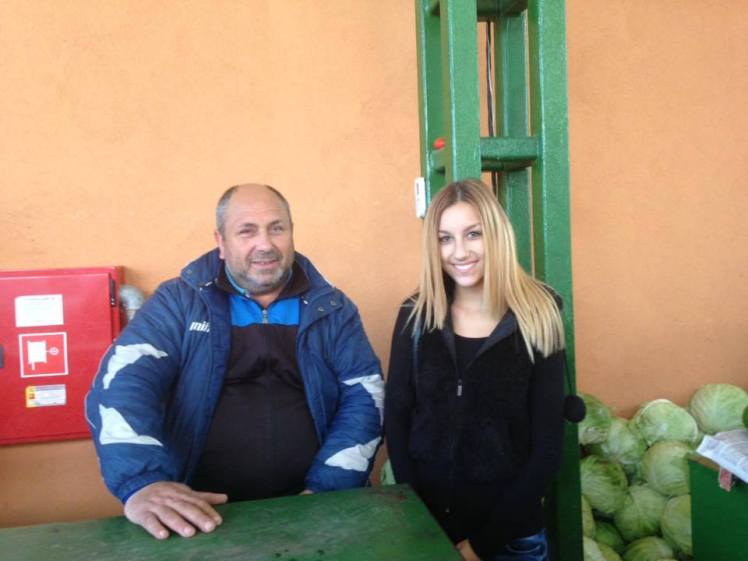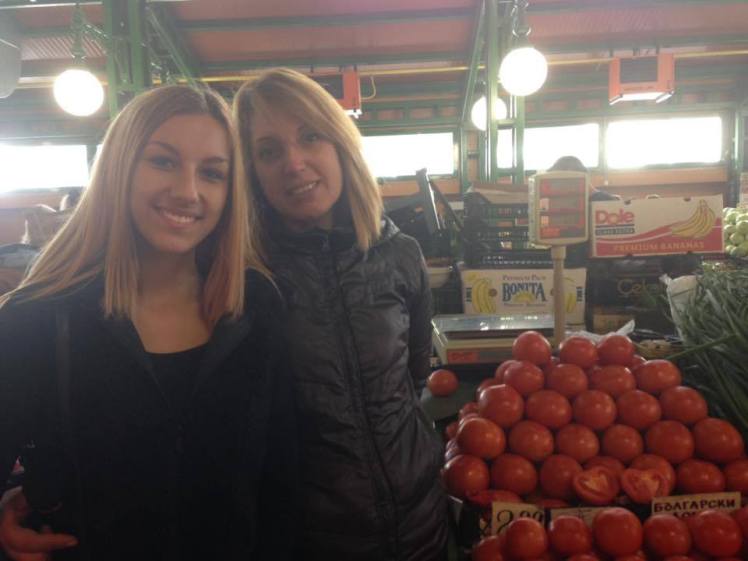In Stara Zagora’s market and on the street, producers and consumers were questioned about ethical eating.
Find out more about their answers inside.
Questions for the producers:
- Is the food you sell produces in an ethical way (e.g. no pesticides or toxic substances are used on or around the plant in the growing process)?
- Why do you choose to produce, grow and sell what people see as ethical/unethical crops? Are there any special reasons for this choice?
- Do you think your customers (as consumers) are influences by the way you produce your food or what you produce? If so, in what way?
Questions for the consumers:
- Do you believe that food can be ethical or unethical? If so, does this opinion influence your food choices?
- Because the world population continues to grow and more food needs to be produced, do you think switching to ethical food is a good idea? Why/why not?
- What’s your opinion about GM food? Are you in favour of or against this kind of food, and do you consume it yourself?
We received answers from 4* producers aged 40-50. (2 males, 2 females)
- Question 1
- No, my products come in contact with pesticides.
- Yes, we produce biological food.
- No, we are ordered to use ammonium nitrate on our crops while growing.
- No, we use pesticides.
- Question 2
- There is no way to grow food without using pesticides because they protect the crops from insects, rodents, weeds and diseases.
- We refuse to use toxic substances so the food can be consumed safely by small children.
- So that the plants can easily grow healthy and strong without getting damaged.
- Pesticides give the opportunity to have a bigger production without insects being able to damage the plants. They also help enrich the exhausted soil.
- Question 3
- It does not influence the end consumer.
- It doesn’t have a negative effect on the consumer.
- The end product doesn’t affect the consumers in a negative way.
- My personal opinion is that there’s no way that the consumer’s well-being is affected by the products.
Next, we asked 3* consumers, aged between 40 and 80. All three were females.
- Question 1
- Food offered on the market can be both ethical or unethical. This influences my consumer behaviour, and therefore also my eating habits.
- I think food can be ethical or unethical. Consequently, my food choices are influenced.
- My food choices and eating habits are influenced by the state of the food offered.
- Question 2
- We should switch to ethical food because I think pesticides are toxic and harmful for our bodies.
- It’s healthier if we’d switch to ethical food.
- Switching to ethical food would be better for everyone’s well-being.
- Question 3
- It should be forbidden to produce and/or import such food, but I eat it when I’m unaware that it’s GM food or if there’s no way to avoid it.
- I’m not a consumer of GM food, because I’m against the use of it.
- I’m against the food, but I do buy and eat the food, because I don’t have the opportunity to produce the food myself. GM food usually has a better quality and it’s produced in bigger quantities.
To conclude: a lot of food still isn’t made/produced in an ethical way. The market is flooded with crops ‘infected’ with pesticides and the production of GM foods isn’t slowing down either. Even though a lot of consumers are against such foods, they still buy and eat it, often because they have no other option (they can’t produce the food themselves). Taking this in consideration, we can safely assume that a lot of food will remain to be unethical.



Cool
LikeLike